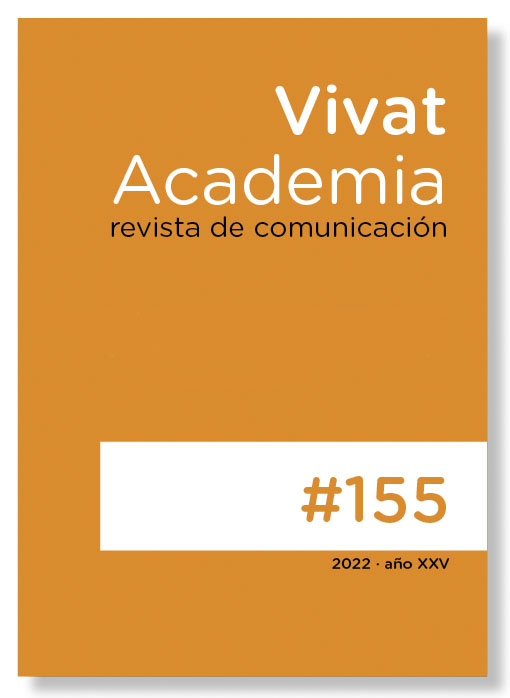Fashion consumption habits through influencers on Generation Z
Main Article Content
Abstract
A global crisis saw emerge the first generation of youngsters who were born, educated, and socialized from the beginning using the internet and social networks. The irruption of “Generation Z” into society (young people born between 1994 and 2010), has made it necessary to rethink how to capture their attention, as they are used to living in a world of immediacy, defend inclusion and diversity, and are the key stakeholders of the collaborative economy. The present work analyzes the consumption habits of this generation, having as the main objective to identify how influencers have contributed to these. The quantitative research that has been carried out has been a survey across 500 young Spaniards (ages of 10 and 25) during the last quarter of 2020. The results obtained highlight the importance of influencers on the consumption habits of Generation Z. Thanks to this, brands try to establish business relationships with influencers, to better connect with their market and their audience. The objective of the brands is to use influencers to transmit security, transparency, and trust about the different products or services they offer.
Downloads
Article Details

This work is licensed under a Creative Commons Attribution-NonCommercial-ShareAlike 4.0 International License.
The main author must deliver the letter of transfer of copyright, according to the model provided by Vivat Academia, Revista de comunicación, which declares the transfer of copyright to the journal and make explicit the rights of authors regarding the dissemination and use of the manuscript once published.
Creative Commons Attribution/Non Commercial 4.0 International
References
Atrevia. (2016). Informe Generación Z: el último salto generacional. https://www.atrevia.com/blog/informe-generacion-z-el-ultimo-saltogeneracional/
Bell, D. (2001). El advenimiento de la sociedad post-industrial. Un intento de prognosis social. Madrid: Alianza Editorial
Bluemedia Studio. (2020). ¿Cómo influyen realmente los 'influencers' en nuestros hábitos de consumo?. La información. https://www.lainformacion.com/branded-content/estar-donde-estes/como-influyen-realmente-los-influencers-en-nuestros-hábitos-de-consumo/2818421/
Castells, M. (2000). La era de la información: economía, sociedad y cultura. Madrid: Alianza Editorial, S.A.
Castells, M. (2012). Redes de Indignación y Esperanza. Madrid: Alianza.
Calderón, N. (s.f.) La socialización como elemento fundamental en la vida. www.psicopedagogia.com
Cerón, N. (2015) Concepto de internet.
Cornellá, A. (1998) ¿Economía de la información o Sociedad de la información? ESADE Barcelona. http://www.ccee.edu.uy/ensenian/catcomp/material/doc2eco.pdf
Drucker, P. (1996). Landmarks of Tomorrow. New York: Harper.
Farnos, J. D. (s.f). La sociedad del conocimiento: las tic y su influencia social y educativa. https://juandomingofarnos.wordpress.com/2011/09/12/la-sociedad-del- conocimiento-las-tic-su-influencia-social-y-educativa/
Fernandez, D. V. (2019). La generación Z: el objetivo principal del nuevo marketing en redes sociales mediante influencers de moda.
Fernández De Bordóns, B., & Niño González, J. I. (2021). Análisis del consumidor en redes sociales y su percepción de las marcas. Revista De Comunicación De La SEECI, (54), 21-54. https://doi.org/10.15198/seeci.2021.54.e628
Finquelievich, S. (2008). La Sociedad de la Información: ¿una nueva disciplina científica?. Revista Iberoamericana de Ciencia, Tecnología y Sociedad. http://www.oei.es/historico/divulgacioncientifica/opinion0063.htm
Foray, D. (2002). La sociedad del conocimiento. Revista Internacional de Ciencias sociales, 171.
Gonzalez-Carrion, E. L., & Aguaded, I. (2020). Engagement y evolución de instagramers hispanohablantes de moda. Revista Latina De Comunicación Social, 77, 231-252. https://doi.org/10.4185/RLCS-2020-1456
Gómez, J. A., (1999). Propuesta de Directiva sobre determinados aspectos de los derechos de autor y los derechos afines en la sociedad de la información, Madrid: Editorial Reus S.A.
Guaña- Moya, E. J., Quinatoa-Arequipa, E., & Perex-Fabara, M. A. (2017). Tendencias del uso de las tecnologías y conductas del consumidor tecnológico. Ciencias Holguín
Hatch, H. (2012). Influenciadores ¿Quiénes con realmente? http://www.merca20.com/influenciadores-quienes-son-realmente/
Institute for Business Value. (2017). Uniquely Generation Z https://www.generationy20.com/retail-generation-z.PDF
Influencer Marketing Hub. (2019). El Estado del Marketing de Influencers 2019: Informe Benchmark. https://influencermarketinghub.com/es/informe-bechmark-marketing-de-influencers-2019/
Krüger, K. (2006). El concepto de sociedad del conocimiento. Revista bibliográfica de geografía y ciencias sociales (serie documental de Geo Crítica). 683 (XI), Universidad de Barcelona. http://www.ub.edu/geocrit/b3w- 683.htm
Lara, I. (2017). Los consumidores de la Generación Z impulsan la transformación digital de las empresas. Revista estudios de juventud. http://www.injuve.es/sites/default/files/2017/28/publicaciones/documentos_5._los_consumidores_de_la_generacion_z.pdf
Maestre, J. V. (2007). Los medios de comunicación y el proceso de aprendizaje. Le Monde Diplomatic. http://www.aldeaglobal.net/jvmestre/medioscomunicacion.html
Martín, A. (2021). Percepción de los estudiantes del grado de publicidad y RR.PP. Sobre la relación entre marcas e influencers en Instagram. Vivat Academia. Revista de Comunicación. https://www.vivatacademia.net/index.php/vivat/article/view/1337/2161
Martinez, J. A, Lara- Navarra, P. y Beltrán, P. (2006). La influencia de la sociedad del conocimiento en la modernización de la Administración Pública. uocpapers, No. 3 http://www.uoc.edu/uocpapers/3/dt/esp/martinez_lara_beltran.pdf
Miller, L. (2018). Gen Z Is Set to Outnumber Millennials Within a Year. Bloomberg. https://www.bloomberg.com/news/articles/2018-08-20/gen-z-to-outnumber-millennials-within-a-year-demographic-trends
Ponce, C. E. (2018). Como los influencers han cambiado los hábitos de consumo de los millennials en Guayaquil. https://dspace.ups.edu.ec/bitstream/123456789/15535/1/UPS-GT002122.pdf
Prats, J. (2015) La población en riesgo de pobreza o exclusión social crece hasta el 29%. El país. http://economia.elpais.com/economia/2015/05/26/actualidad/1432626857_809310.html
Real Academia de la Lengua Española. http://dle.rae.es/?id=KzwDY4y
Sequeiros, C., Puente, H., López, M., & Fernández, M. (2016). Juventud, cultura y NTICs: ¿Triángulo o prisma? Teknokultura, 711.
Sinay, S. (2009). La sociedad de los hijos huérfanos. Ediciones B.
Szabo, C. (2005). Knowledge-based society?. University of Miskolc.http://www.uni-miskolc.hu/uni/res/kozlemenyek/2005- 2/pdf/szabocs.html
Velasco, A. M. (2021). Influencers, storytelling y emociones: marketing digital en el sector de las marcas de moda y el lujo. Vivat Academia. Revista de Comunicación. https://www.vivatacademia.net/index.php/vivat/article/view/1321/2155
Villegas, C. A. (2010). Fundamentos socioculturales de la educación. E-Historia. http://www.e-historia.cl/e-historia/fundamentos-socioculturales-de-la-educacion/
Zuckerman, M. (2019). Influencer Marketing: Millennials y Centennials. https://blog.digimind.com/es/insight-driven-marketing/author/melissa-zuckerman





